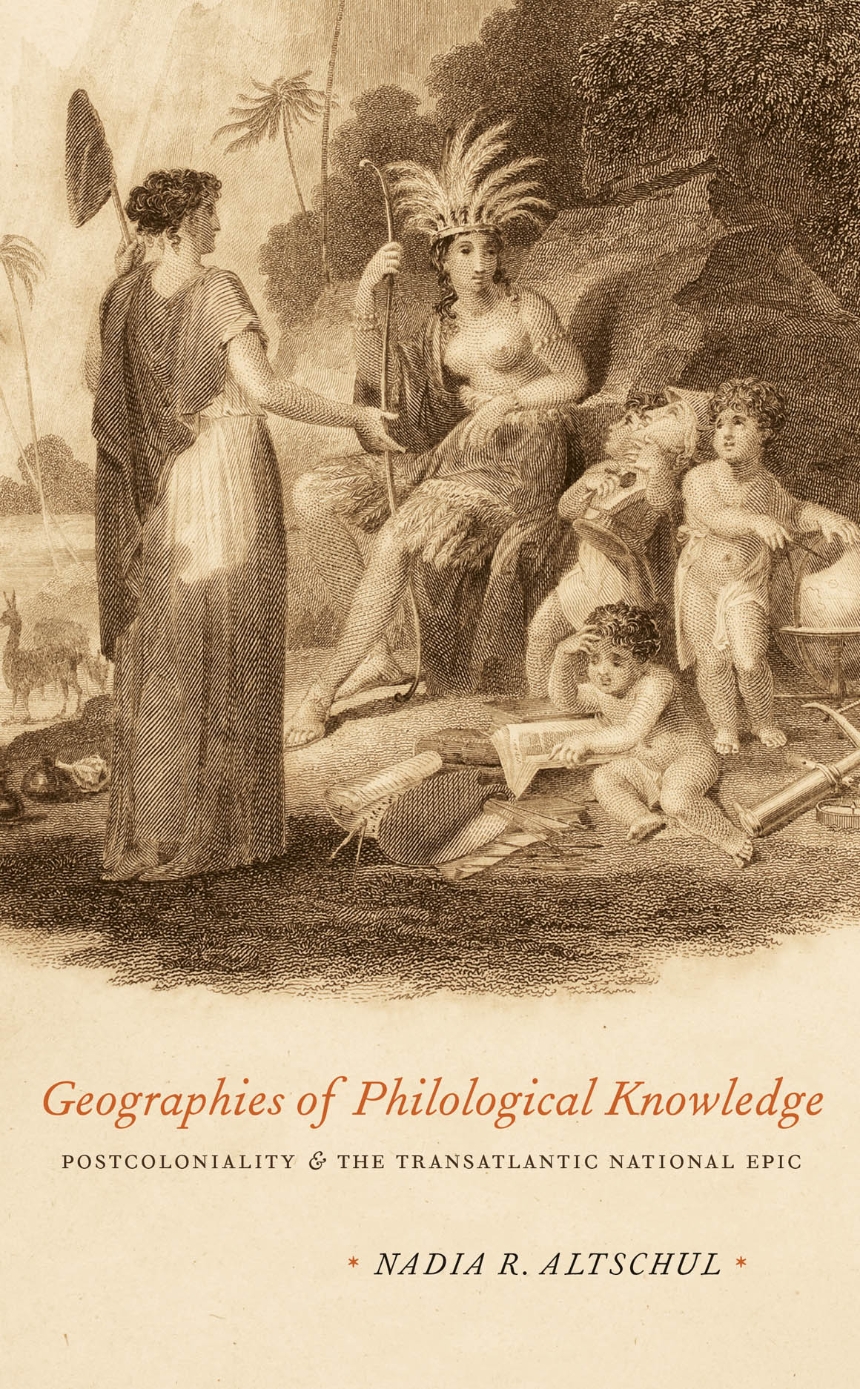Geographies of Philological Knowledge
Postcoloniality and the Transatlantic National Epic
9780226016214
9780226016191
Geographies of Philological Knowledge
Postcoloniality and the Transatlantic National Epic
Geographies of Philological Knowledge examines the relationship between medievalism and colonialism in the nineteenth-century Hispanic American context through the striking case of the Creole Andrés Bello (1781–1865), a Venezuelan grammarian, editor, legal scholar, and politician, and his lifelong philological work on the medieval heroic narrative that would later become Spain’s national epic, the Poem of the Cid. Nadia R. Altschul combs Bello’s study of the poem and finds throughout it evidence of a “coloniality of knowledge.”
Altschul reveals how, during the nineteenth century, the framework for philological scholarship established in and for core European nations—France, England, and especially Germany—was exported to Spain and Hispanic America as the proper way of doing medieval studies. She argues that the global designs of European philological scholarship are conspicuous in the domain of disciplinary historiography, especially when examining the local history of a Creole Hispanic American like Bello, who is neither fully European nor fully alien to European culture. Altschul likewise highlights Hispanic America’s intellectual internalization of coloniality and its understanding of itself as an extension of Europe.
A timely example of interdisciplinary history, interconnected history, and transnational study, Geographies of Philological Knowledge breaks with previous nationalist and colonialist histories and thus forges a new path for the future of medieval studies.
264 pages | 5-1/2 x 8-1/2 | © 2012
Literature and Literary Criticism: American and Canadian Literature, Romance Languages
Reviews
Table of Contents
Acknowledgments
Introduction: Creole Medievalism and Settler Postcolonial Studies
Introduction: Creole Medievalism and Settler Postcolonial Studies
Part 1. The Coloniality of Hispanic American Philological Knowledge
1. The Global Standards of Intellectual and Disciplinary Historiography
2. Taken for Indians: “Native” Philology and Creole Culture Wars
Part 2. Metropolitan Philology and the Settler Creole Scholar
3. National Epic Denied: European Assertions of the Lack of a Spanish Epic
4. Andrés Bello and the Foundations of Spanish National Philology
Part 3. Medievalist Occidentalism for Spanish America
5. Defining the Spanish American National Epic and Other Occidentalist Resistances
6. The Spanish Orient in Bello’s Spanish American Occidentalism
Coda
Bibliography
Index
Awards
Modern Language Association: MLA Katherine Singer Kovacs Prize
Honorable Mention
